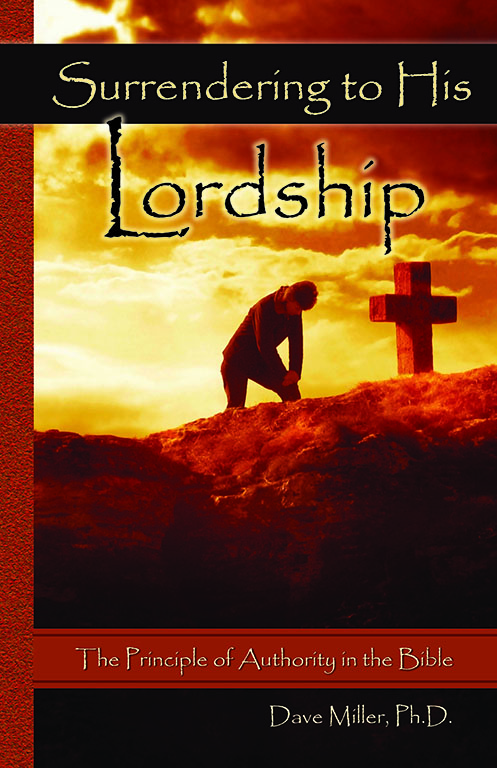Q&A: David and Musical Instruments
Q&A: David and Musical Instruments
Q:
“What made King David so special that he could dictate matters strictly reserved for ‘Thus says the Lord’? And further, why did Solomon and other succeeding kings follow David’s expansion of musical instruments?”
A:
David committed several grievous sins in his lifetime, including his sin with Bathsheba, his unauthorized taking of the census, and the eating of the showbread (which Jesus said was “not lawful”—Matthew 12:4; Mark 2:26; Luke 6:4). However, overall, he seemed to have a committed heart most of the time. Like all of us, he stumbled on occasion (like Abraham, also). His intermittent failures were not likely to be attributed to “indifference,” but merely giving in to temptation and the pressure of the moment, again, like the rest of us. God did not brush aside those infractions, nor would He want us to draw the conclusion that David was somehow “special” and given greater leeway or forgiveness than the rest of us, nor that God approved of any action on David’s part in which he presumed to dictate worship protocol. God is consistent throughout human history in His insistence that His law be obeyed—by everybody—and He never authorizes violations of it. To violate God’s law is, by definition, “sin” (1 John 3:4), and sin must be forgiven in accordance with the divine prescription for atonement—no exceptions.
Regarding the introduction of instrumental music, the Bible plainly states that it was not David who made this change—but God Himself. Read 2 Chronicles 29:25—And he stationed the Levites in the house of the LORD with cymbals, with stringed instruments, and with harps, according to the commandment of David, of Gad the king’s seer, and of Nathan the prophet; for thus was the commandment of the LORD by his prophets.
Notice the line of authority in that verse: (1) God, (2) Nathan the prophet, (3) Gad the King’s Seer, and (4) David. So, God authorized the introduction of instruments (for the Levites), doing so via the chain of authority from Himself to prophet, to seer, and then to David. It would make sense, then, that some passages would say that they were introduced “by the command of David.” But that is simply the Bible’s not infrequent way of shortening a concept. One must gather everything in the Bible on a particular subject and fit it together properly before drawing any conclusions (1 Thessalonians 5:21). David commanded/added instruments into Temple worship because he was authorized to do so by God Himself. See also 2 Chronicles 30:12 for this same sequence: “Also the hand of God was on Judah to give them singleness of heart to obey the command of the king and the leaders, at the word of the LORD.” The intermediate authorities who issued commands to the people were simply operating under the overall jurisdiction and instructions of God. Observe, then, that this clarification answers the second question: Solomon, Hezekiah, et al. added instruments because God authorized them to do so.
Of course, the lesson for Christians living today is to recognize that God has always acted in harmony with His principle of authority. All people are to worship God in accordance with His worship instructions specified in the New Testament. It so happens that since the cross, God confines all musical worship expression to vocal music—not instrumental (1 Corinthians 14:15; Ephesians 5:19; Colossians 3:16; James 5:13).


What About Amos 6:5?
Some have suggested that the use of instrumental music in worship in David’s day was condemned on the basis of the fact that the prophet Amos uttered “woe” on those who invented for themselves musical instruments like David (Amos 6:5). The context of the passage, however, clarifies the meaning of this statement as originally intended by the inspired prophet.
Like most of the Old Testament prophets, the primary mission of Amos was to rebuke God’s people for their disobedience in hopes of restoring them to the righteous living that God required and expected of them. After spotlighting the sins of the surrounding nations and announcing their punishment (chs. 1-2), Amos turned his attention to the Israelites’ own sins, including their dishonesty, unethical treatment of others, sexual immorality, oppression of the poor, and other acts of injustice. The population was particularly immersed in materialism—living in ease, luxury, and comfort while forsaking the priority of spiritual things. Amos’ response? “Woe to you who are at ease in Zion” (6:1). In his booklet on the minor prophets, Jack Lewis provides a fitting summary of their materialistic condition:
Women, whose insatiable desire for finery drives their husbands to oppression, stretched out on their couches of ivory, call each to her husband, “Mix us another drink” (4:1). The people have their summer houses and winter houses (3:15) and their beds of ivory (6:4). At ease in Zion, the people eat the finest food, anoint themselves with fine oil, and invent instruments of music like David for their entertainment, but do not concern themselves with the approaching ruin of their country.1
The passage has nothing to do with worship, comparing the Israelites of Amos’ day with David only in the matter of using instruments. Their use of instruments was directed to their wanton lifestyle in the midst of spiritually barren lives. In the same way that there was nothing inherently wrong with the Israelites having ivory couches, summer homes, and lambs and calves to eat, there was nothing inherently wrong with the invention (and use) of musical instruments. The problem was that their submersion in luxury dulled their spiritual appetites and caused them to turn against God.
ENDNOTE
1 Jack Lewis (1998), The Minor Prophets (Henderson, TN: Hester Publications), p. 19.

REPRODUCTION & DISCLAIMERS: We are happy to grant permission for this article to be reproduced in part or in its entirety, as long as our stipulations are observed.



0 Comments:
Post a Comment
<< Home